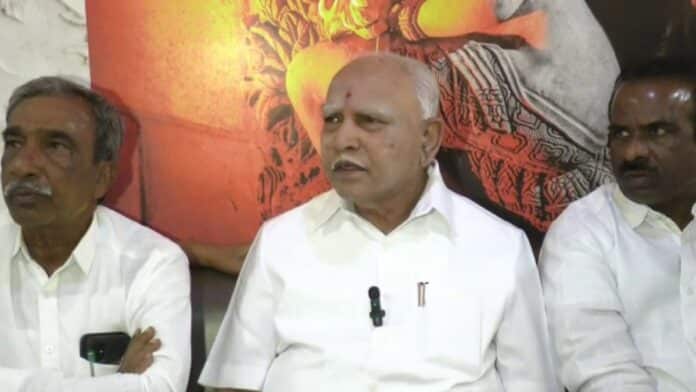In a pivotal development, the Supreme Court of India deferred the plea of former Karnataka Chief Minister B S Yediyurappa to a larger bench, addressing crucial legal questions concerning the necessity of prior sanction for prosecution under the Prevention of Corruption Act. This decision follows the discovery of a coordinate bench’s reference to similar legal queries in another case, prompting a review based on “judicial propriety.”
A bench led by Justices J B Pardiwala and Manoj Misra highlighted the overlap with the case Manju Surana v. Sunil Arora, which grapples with analogous issues. Consequently, the registry has been instructed to consolidate these petitions for review by the Chief Justice of India.
The intricacies of the case originated from a plea by Bengaluru-based A Alam Pasha, which led to the revival of corruption charges against Yediyurappa, former Industries Minister Murugesh R Nirani, and Shivaswamy KS, ex-managing director of Karnataka Udyog Mitra. The allegations involve a conspiracy to forge documents influencing a high-level clearance committee’s decision on industrial land allocation.
In its earlier ruling on January 5, 2021, the Karnataka High Court had reactivated Pasha’s complaint, stressing that the lack of a previous sanction for prosecution, which had earlier quashed the complaint, does not preclude the filing of a fresh complaint once the accused have demitted office. However, it did not permit the prosecution of V P Baligar, a retired IAS officer.
The Supreme Court’s inquiry now centers on whether judicial magistrates require a prior sanction from appropriate authorities to order probes under Section 156(3) of the Code of Criminal Procedure, despite the procedural directions which might include preliminary inquiries or the registration of an FIR. This question extends to the compatibility and scope of Section 17A of the Prevention of Corruption Act, which mandates prior approval for investigations related to the official functions of public servants.
Further examination by the larger bench will focus on the relevance of such sanctions post-judicial review, and whether the considerations under Section 17A of the PC Act should influence or override the magistrate’s directives. This intricate legal interplay will determine the extent to which prior approvals constrain judicial discretion and the scope of investigative measures against public servants.




